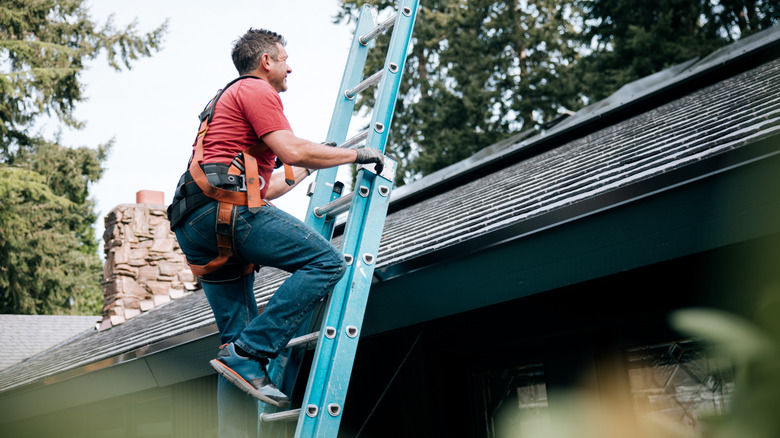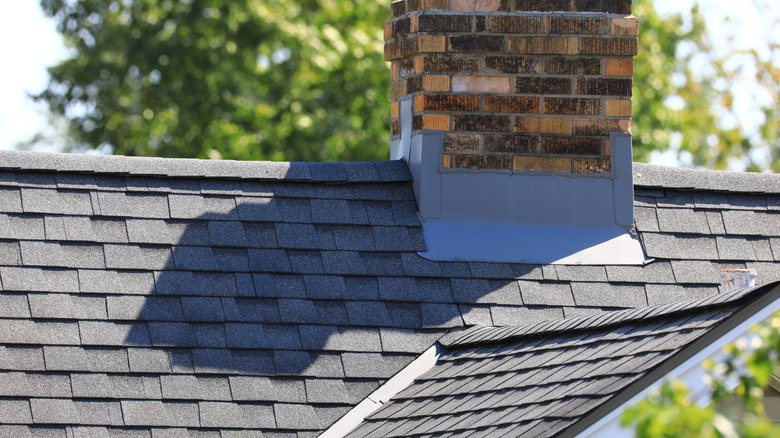What Is Fortified Roofing (& Should You Get It In Your Home)
If you live in an area where hurricanes are common, then you've probably heard of fortified roofing. This is a special designation for roofing with rigorous requirements designed to shield homes and commercial properties from destructive weather — think hailstorms, windstorms, and even hurricanes. It was established by the Insurance Institute for Business and Home Safety (IBHS), which used research on insurance claim data to determine what roofing solutions actually hold up to severe weather. Formal certification requires a third-party inspection and comes in three tiers, each with increasingly stringent standards: Fortified Roof, Silver, and Gold.
This program is a solid option for anyone concerned about protecting their house from hurricanes. In the United States, all residential homes must be constructed in line with building codes, which are baseline standards for safety and structural integrity. These vary from state to state. As the name suggests, fortified roofing goes beyond those guidelines, offering additional layers of defense against weather-related damage that also run the gamut depending on your location. Key differentiators include the use of ring-shank nails for roofing, which improve wind resistance, and tape as a sealant, which prevents water leaks. Upgrading your roof and getting certified can lower your home insurance premium, which will be music to any homeowner's ears. However, there are some cons to fortified roofing versus regular roofing — most notably, its higher price tag.
The pros and cons of fortified roofing
Though it's a desirable choice for many homeowners, fortified roofing comes with some drawbacks. The standards are quite rigorous and require additional materials and labor; however, any contractor offering roofing services should be able to execute them properly and pass an inspection. That means it's generally more expensive than the cost of your average roof replacement, which is already a pricey undertaking. The upfront cost increase can range from $1,000 to $3,000 for a 2,000-square-foot home.
However, if peace of mind is something you value or you're looking to save money long-term, then fortified roofing might be the right choice for you. Scientific research on climate change indicates that rising ocean temperatures have made hurricanes more intense, increasing average wind speeds and, in some cases, storm categories — which, in turn, may raise the likelihood of damage to impacted homes. Some states where hurricanes are common, such as Louisiana and Alabama, offer fortified roof grant programs to incentivize homeowners to pursue this option, ultimately lowering their insurance premiums. Fortified roofing can also increase the resale value of your home. Since it helps with durability in general, it can improve the longevity of your roof, too, saving you more money in the long run. Still on the fence (or should we say, roof)? IBHS offers a virtual assessment tool to inform your decision-making process.
Make sure your contractor understands the fortified roofing requirements
If you opt for fortified roofing, make sure you're working with a contractor you trust. With proper documentation, the higher upfront cost of your fortified roof is likely to pay for itself after your home insurance reduction kicks in, as shown by data from a recent audit of Louisiana's aforementioned fortified roof grant program. It's also proven to be effective: A recent study from the University of Alabama found that homes with fortified roofs suffered significantly less damage during Hurricane Sally in 2020.
However, be aware that some roofers throw the term "fortified" around without doing their due diligence to meet the certification's standards. Anecdotally, this appears to be a common pitfall. In a scenario like that, said roof probably wouldn't pass an inspection — which, again, is mandatory to receive a fortified roof certification (and all of those lovely cost-saving benefits) from IBHS. As with any major update to your home, it's essential to do your research. Find a contractor who has positive reviews, clearly states that they offer fortified roofing services, and is willing to answer all of your questions. You can also consult IBHS' provider directory to find a reputable contractor near you who provides this service.


